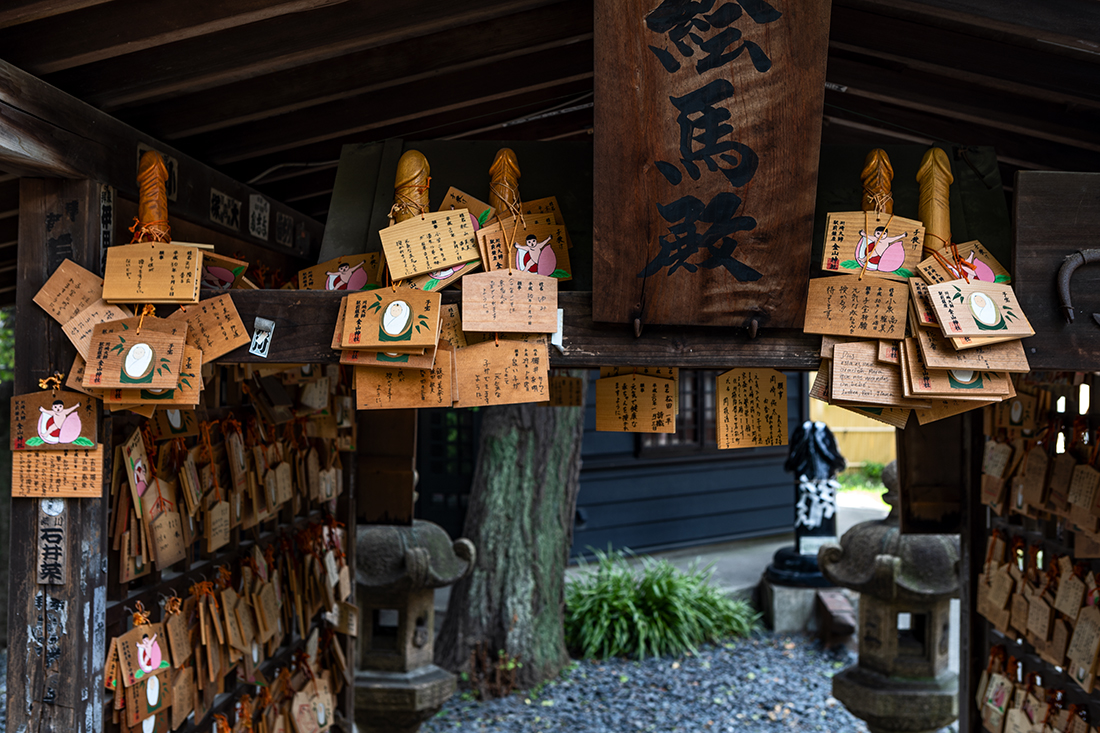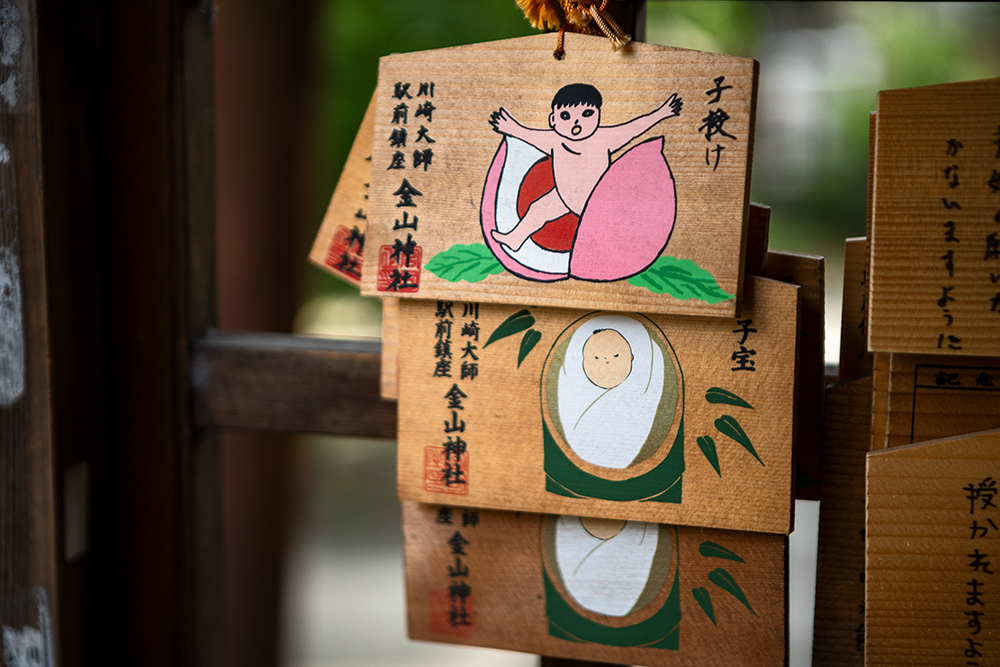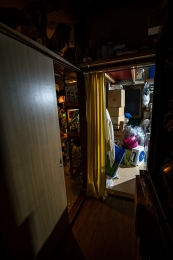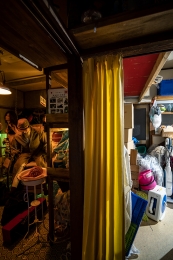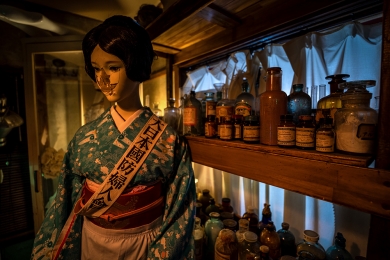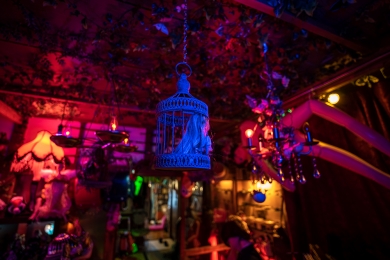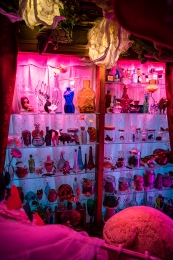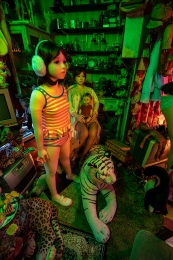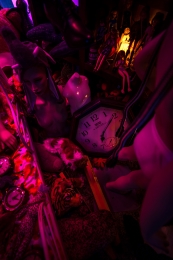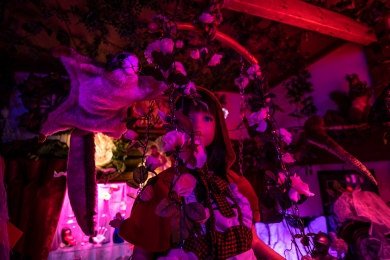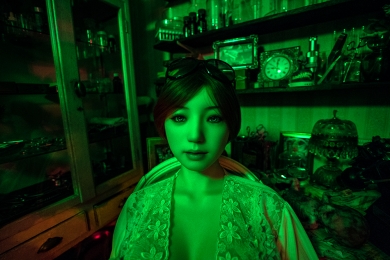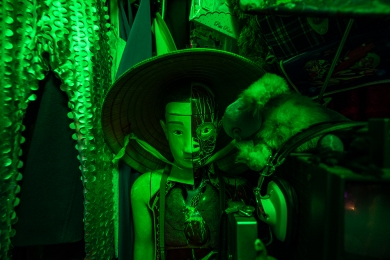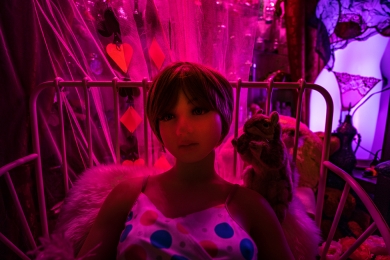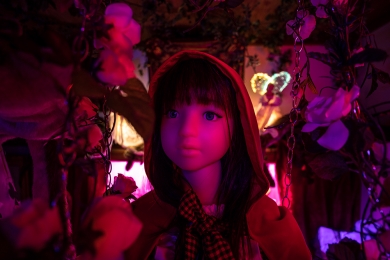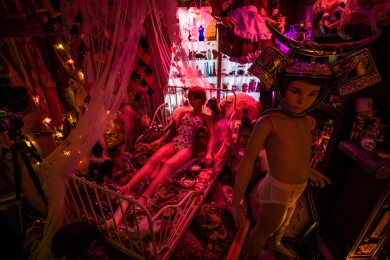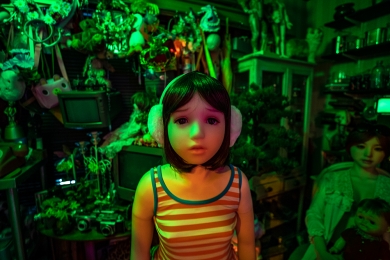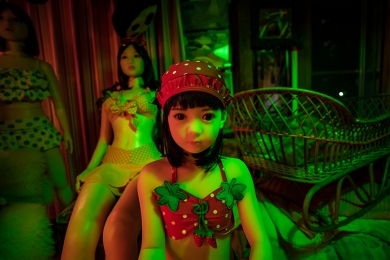Sexuality in Tokyo
The dream of bringing Eros back:
I was invited for dinner. We ate Sashimi, grilled fish, rice and salad. It was a very good dinner.
The couple turned their home into an erotic palace with many naked full sizes mannequins, objects and books.
Both dream of bringing Eros back to Japan.
By participating in public demonstrations and creating art, the couple depicted above aims to share their interests with others.
Reporting on "sexuality in Japan" feels a bit peculiar, given that I am undoubtedly a cultural outsider in Japan. However, I want to share some of my observations.
The Japanese society seems surprisingly accepting of these abnormal sexual behaviors. Is this an exception where such extremes are not frowned upon by society?
A biologically dysfunctional sexual behavior appears to have emerged, as Japan's population numbers are declining.
- Is partnership considered inappropriate in general? This is a sentiment echoed by "herbivore men" – young heterosexual men who choose to abstain from sexual contact with women, a trend identified by gender studies in Tokyo in the 21st century. Most research in this field has been conducted by male scholars. It remains less explored whether similar trends exist among certain groups of women, which seems to be of limited interest in Japanese academia (and international media, of course).
- Kabukichō, however, shows that the opposite is also true. The sidewalks of Kabukichō are filled with male hosts, sought after by women seeking professional companionship for the evening, ranging from services of friendship to services of prostitution, which is by law not allowed.
- Statistics claim that Japan has the highest rate of homosexuality among young men in the world. A 2018 study on sexual minorities in Japan found that 8.9% of respondents identified as LGBTQ+ (1).
- While rapid technological and societal changes are causing role conflicts in the rest of the "modern" world, rigid gender roles in Japanese society are more or less the same like 50 years ago.
What do these observations mean for the future of the nation? How does the human species define itself within and outside of this complex situation? How is this situation addressed by politics, the economy, and society? What would a positive transformation look like, or is it indicative of the end of a culture?
The man who married a sex doll
Thanks to my Japanese friends, I met some very strange people in Tokyo. One of them was the man who married a sex doll.
Again, I was kindly invited for dinner. Again, vegetables and tempura. I tried to get answers to all my questions, but in the end, I left his place more confused than when I entered.
Sources:
(1) Dentsū Inc. (2019): January 10, 2019 Marketing Reports CSR [https://www.dentsu.co.jp/en/news/release/2019/0110-009756.html]
















